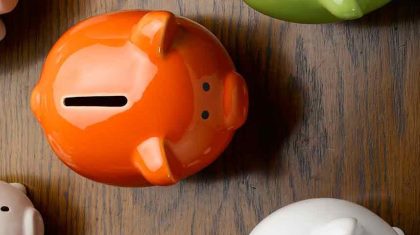Budgeting 101 working out your income and expenditure
June 18, 2018
Working out a realistic budget is a great way to take control of your finances. Although it may seem like a chore, it’s the crux of sound – and sustainable – financial management. In this article we look at how to ‘do the numbers.
A budget shows you how much money you’re earning, how much you’re spending, and how much you’re saving.
While it can be tempting to put it off, creating a realistic budget can help you hit your savings goals faster. Let’s start with the numbers.
WORK OUT YOUR CURRENT INCOME
For most of us, this is a matter of checking our payslip or salary credit and seeing what we get (after tax and super). It’s trickier if you’re a contractor or self-employed, or if your income varies wildly from month to month. Use your last tax return and work out your weekly net income (after business expenses, GST and PAYG).
Do you have any other sources of income? Interest from investments, government contributions or child support payments? Work out what they average week to week, then add this in.
WORK OUT YOUR SPENDING
It can be easy to underestimate how much you spend on a day-to-day basis. But in order to create a realistic budget, it’s important to find out how much you’re spending, and on what.
Firstly, take a good hard look at your bank statements. Go back over the past two or three months and make a note of everything you’ve paid for. Remember there are some hefty costs that only come up every year, or less, like car insurance and registration.
It’s helpful if you group things into categories. Let’s start with the basics: food, clothing, housing, transport, communication and insurance.
Housing expenses
The biggest expense you’ll face is probably your rent or mortgage. If you own your own place, you’ll also be hit up for home maintenance (repairs), home and contents insurance, and rates. Plus utilities (gas, electricity, water etc.).
If you’re currently renting or considering renting, check out our Renting vs Buying calculator. This calculator shows you what size home loan repayments you may be able to service based on your current rental payments.
Food and drink
This includes your groceries, but also your takeaway lunches and evening feasts out. Don’t forget those coffees and other incidental snacks – it all adds up.
Clothing
You might want to divide this category into your work clothes and your fun clothes to sort out what’s necessary and what’s not. If shoes are your thing, you’ll need to account for these too.
Transport
The costs of running a car or using public transport can easily add up. Fuel’s just the start—there’s parking, repairs, preventative maintenance and insurance.
A really robust budget also factors in things like replacing your car at some point.
Public transport’s often cheaper, and this also has to be factored in.
Communication
Consider the bills for your mobile, internet and (if you still have one) landline charges.
Insurance
If you have any sort of insurance – health, life, medical, or perhaps income – you’ll be paying premiums. They may be yearly or monthly, but make sure they’re factored into your final budget.
Health and wellbeing
Although these costs might be occasional, your budget should take into account things like medical spending (including the dentist) and pharmaceutical costs.
In this section you can also include lifestyle costs like gym membership and sports club fees.
Life and leisure
Think about all those incidental costs that pop up over the year: magazine and TV streaming subscriptions, weekends away, movies, Christmas and birthday gifts.
Replacement costs
Every now and then, you’ll unfortunately have to replace the fridge, the washing machine, the TV, the lounge suite etc. Replacing these items can make a significant dent in your savings if you don’t have a plan in place to prepare for them ahead of time.
Debts
Which includes personal loans, credit cards, store cards and other loans, and the interest that comes with them.
Miscellaneous
This is where you’ll budget for everything else that doesn’t fit within the categories you’ve laid out. These might include pet costs, uni or office fees, childcare, beauty costs etc.
The government’s MoneySmart website also has a comprehensive section on budgeting that’s worth a look.
We can offer straightforward, transparent advice and can help develop a plan that suits you.Please contact us on |PHONE|
Important information
The information contained in this article is intended to be of a general nature only. It has been prepared without taking into account any person’s objectives, financial situation or needs. Before acting on this information, NAB recommends that you consider whether it is appropriate for your circumstances. NAB recommends that you seek independent legal, financial, and taxation advice before acting on any information in this article
Any information provided by the author detailed above is separate and external to our business and our Licensee. Neither our business, nor our Licensee take any responsibility for any action or any service provided by the author.
Any links have been provided with permission for information purposes only and will take you to external websites, which are not connected to our company in any way. Note: Our company does not endorse and is not responsible for the accuracy of the contents/information contained within the linked site(s) accessible from this page.
Powered by WPeMatico
